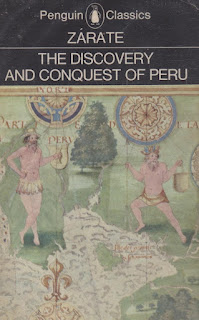 In the Heart of the Sea: The Tragedy of the Whaleship Essex by Nathaniel Philbrick
In the Heart of the Sea: The Tragedy of the Whaleship Essex by Nathaniel PhilbrickMy rating: 4 of 5 stars
Sir Ernest Shackleton has been a hero from the time I read his book on the Endurance Expedition - 'South'. It is a book which brings out the man, who sets a prime example of what and how a leader should behave under trying circumstances.
But 'In the heart of the sea' is about a different kind of expedition and ends up with a different kind of leader. The book espouses a lot of what should not be done under various circumstances. The story, written as one of human grit and endurance, falls flat - at least, to me - in the way the various crew members conduct themselves and they way they are lead.
I keep thinking that I cannot judge these people by the standards I've today. They may not even recognize it.That a whaling expedition those days is about monetizing the whale and none of these people from the 19th century had any qualms about it. The racial prejudices, the fear of the other and the superstitions are - while easy to comprehend, difficult to contextualize in terms of their lives.
Nathaniel Philbrick writes so beautifully that the prose flows with such beauty, you get taken by the intricacies of the whale hunt. He documents the Nantucket life in the early 19th century with such vividness - it is easy to visualize the same with ease. But the underlying thought of how a people of such peaceful disposition - Quakers - end up with so much blood on their hand?
The story of the whaling ship Essex, which was attacked by a Sperm Whale in the middle of the Pacific with its crew confined to 3 cramped whaling boats struggling for survival is of such intensity that it is difficult to put the book down. However, what happens till that point in the voyage and after - the picking up of the giant tortoises of the Galapagos for food, the burning down of the Charles island killing so much of lives with it, the decision to go to South America rather than the nearby islands makes no sense to me at least - it all sounds wanton destruction and utter foolishness for the sake of it.
The author comes up with a lot of reasons for the way the crew behaved but I cannot but think that at its peak, Nantucket alone had hundreds of whale ships which went out and if each one of them did what the crew of Essex did year-in and year-out, the amount of destruction visited on this planet by this one little island seems huge.
The book itself is very non-judgmental and places the events and the people in proper context and try to make sense of all their decisions and actions. Even he cannot explain satisfactorily why 5 of the 6 dead in the first days of the wanderings in the Pacific, happen to be black and whether there were more than what meets the eye here.
I also started wondering that I never felt the same when Shackleton's men start killing the seals and eating the meat during their marooning in the snows of Antartica. The reason being that Shackleton and his team were explorers - out in Antartica for the sake of science and not for wanton slaughter. That is the difference from the crew of Essex.
However, the feeling of disgust is not just for the Essex but for the way the whaling was conducted with utter disregard to the life and its many forms. It is just a sad story of man's greediness and nothing more. I found no heroism in their conduct during their wandering in the Pacific for 4 months but only a tenacious will to live - which they denied to the whales (and possibly the blacks!).
"The Essex disaster is not a tale of adventure. It is a tragedy that happens to be one of the greatest true stories ever told"
However, I believe the only tragedy is for all those species which crossed the path of Essex and other whale boats.
View all my reviews

No comments:
Post a Comment